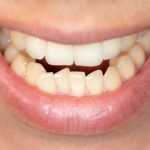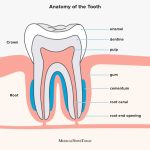Counting Bunny Teeth: How Many Teeth Does a Rabbit Have?
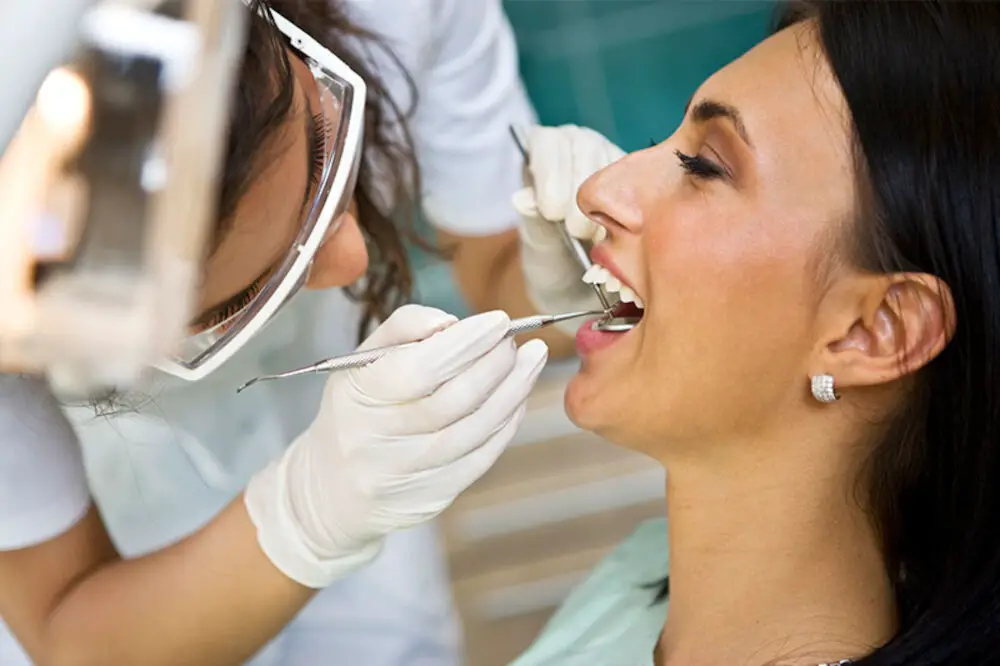
Rabbits are fascinating creatures, with their soft fur, long ears, and cute little noses. But, have you ever wondered how many teeth they have? Counting bunny teeth may not be the first thing that comes to mind when thinking about these adorable animals, but it is a fascinating topic that sheds light on their unique anatomy and dietary habits. Unlike humans, rabbits have a set of teeth that never stops growing throughout their lives. This means that they need to constantly wear them down by chewing on tough, fibrous foods. In fact, rabbits have a special digestive system that allows them to extract as many nutrients as possible from their food, which is why their teeth are so important. In this article, we will explore the fascinating world of bunny teeth, from how many they have to how they use them.
Rabbits are adorable creatures that are known for their long ears, fluffy tails, and cute little noses. But have you ever wondered how many teeth a rabbit has? These furry herbivores have a unique dental structure that sets them apart from other animals. Unlike humans, rabbits have four incisors at the front of their mouth that never stop growing throughout their lifetime. They also have molars at the back of their mouth that help them grind and chew their food. In total, rabbits have 28 teeth that are constantly growing and changing. Maintaining healthy dental hygiene is crucial for rabbits to live a happy and healthy life.
Knowing the number of teeth in rabbits is crucial for their overall health and well-being. Rabbits are herbivores, and their teeth continue to grow throughout their lives. If their teeth are not worn down through regular chewing, they can become overgrown and cause dental problems, leading to pain, infection, and even death. By counting the number of teeth in rabbits, owners can monitor their rabbit’s dental health and ensure that their teeth are properly worn down. Additionally, if a rabbit is experiencing dental issues, veterinarians need to know the number of teeth in rabbits to diagnose and treat the problem effectively. Therefore, counting bunny teeth is an essential aspect of responsible rabbit ownership.
What are Rabbit Teeth Like?

Rabbit teeth are an essential part of their anatomy, as they help them to efficiently chew their food and maintain their overall health. These small, sharp teeth are incredibly unique and are specially adapted to suit the rabbit’s dietary needs. The teeth of a rabbit are constantly growing, and they require regular wear and tear to prevent overgrowth. Furthermore, rabbit teeth are designed to be chisel-shaped, which helps them to grind down tough plant matter and fibrous materials. Rabbit teeth are located in the upper and lower jaw, with a total of 28 teeth in their mouth. The teeth are arranged in two rows, with four incisors in the front and molars in the back. The incisors are the most noticeable of the rabbit’s teeth, as they are long and sharp and are used to cut and slice food. The molars, on the other hand, are flatter and broader, and are used to grind up food before it is swallowed. Overall, rabbit teeth are an essential part of their diet and play a crucial role in their overall health and wellbeing.
Rabbits have a unique set of teeth that are essential for their survival and well-being. Their teeth are constantly growing, and they need to be worn down through constant chewing on hay and other fibrous materials. A rabbit’s teeth consist of four incisors at the front of their mouth, which are used for biting and cutting food, and two sets of molars at the back, which grind and crush their food. These teeth are sharp and strong, allowing them to break down tough vegetation and other food sources. However, if a rabbit’s teeth become overgrown or misaligned, it can lead to serious health problems, making it important to keep a close eye on their dental health.
Rabbits are herbivorous animals that have evolved to have unique and complex teeth structures to help them grind and chew on tough plant material. They have four types of teeth: incisors, canines, premolars, and molars. Incisors are the most noticeable and prominent of the rabbit’s teeth, located at the front of the mouth. They are long, sharp, and used for cutting and biting. Canines are small and located just behind the incisors. They are not as prominent as the incisors and are mainly used for holding and grasping food. Premolars and molars are located at the back of the mouth and are used for grinding and crushing food. Rabbits have a total of 28 teeth, and unlike humans, their teeth continue to grow throughout their life, which makes dental care essential for their overall health.
Rabbit teeth play an essential role in a rabbit’s life. They are vital for their survival as they allow the rabbit to chew and digest their food properly. Rabbits are herbivores and require their teeth to be strong and sharp enough to grind and break down tough plant material. They have four incisors in the front of their mouth that continuously grow throughout their life. These teeth are responsible for nibbling and cutting the food into small pieces. Additionally, rabbits have molars located in the back of their mouth that crush and grind up the food further. Without these teeth, rabbits would not be able to sustain a healthy diet and would struggle to survive in the wild. It is crucial to monitor their teeth’s growth and ensure they are not overgrowing, which could cause significant health problems for the rabbit.
How Many Teeth Does a Rabbit Have?
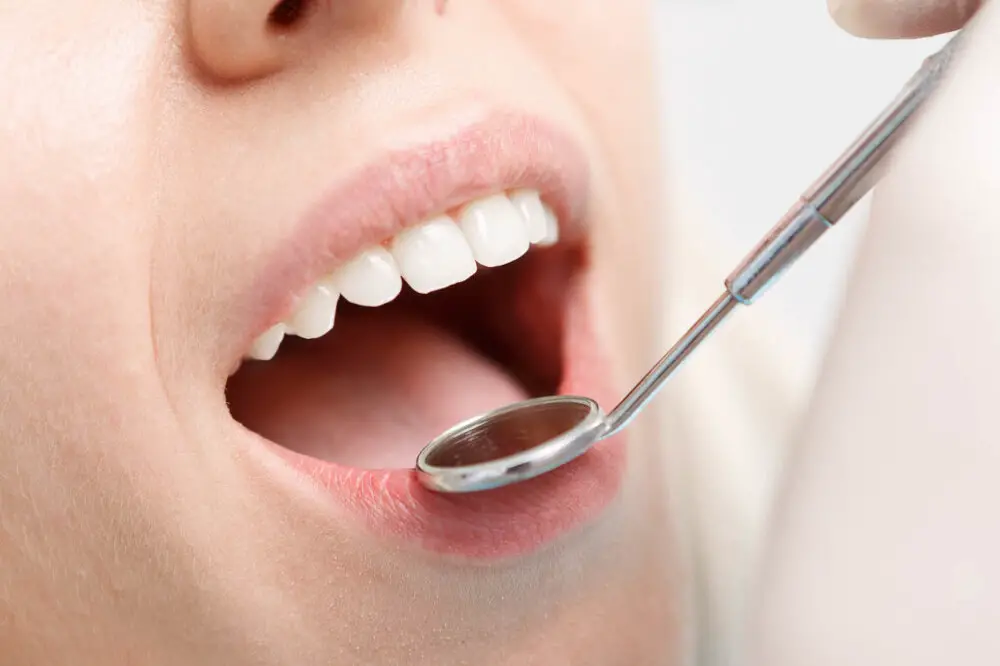
Rabbits are adorable and furry creatures that are known for their long ears and cute noses. One of the interesting facts about rabbits is that they have a unique set of teeth that help them in their daily activities. On average, a rabbit has 28 teeth, including 4 incisors, 2 canines, and 22 molars. The incisors are the front teeth located at the front of the rabbit’s mouth, which they use for cutting and biting food. The canines are the sharp teeth that are next to the incisors, which help the rabbit to grip and tear food. The molars are the flat teeth located at the back of the rabbit’s mouth, which they use for grinding and chewing food. It is essential to understand the dental structure of rabbits as their teeth continuously grow throughout their lives. As rabbits are herbivores, their diet mainly consists of hay, grass, and vegetables, which require a lot of chewing. Therefore, the rabbit’s teeth need to be strong and healthy to carry out their daily activities. Dental problems are common in rabbits, and a lack of proper dental care can lead to serious health issues. Regular check-ups and a balanced diet can help maintain the rabbit’s dental health and prevent any potential problems.
Rabbits are known for their adorable looks and fluffy appearance, but have you ever wondered how many teeth they have? Well, rabbits are herbivores and require strong teeth to chew their food properly. They have a total of 28 teeth, which include four incisors, two canines, and 22 molars. The incisors are located at the front of their mouth and are used for cutting and nibbling on vegetation. The canines are small and help in holding and tearing food, while the molars are located at the back of their mouth and are used for grinding and crushing their food. It’s important to keep an eye on your rabbit’s teeth as they grow continuously throughout their life, and any dental issues can lead to serious health problems.
The number of teeth varies across different species, including rabbits. For instance, rabbits typically have 28 teeth, with four incisors and twenty-four molars. However, some species of rabbits may have a slightly different number or arrangement of teeth, such as the cottontail rabbit, which may have up to 30 teeth. Other animals, such as dogs and cats, have a different number of teeth compared to rabbits, with dogs having 42 teeth and cats having 30. This variation in teeth number is due to the differences in the animals’ dietary needs and evolutionary adaptations for their specific environments. Understanding the differences in teeth number between species is crucial for identifying and treating dental problems in animals.
Rabbits are unique in their dental development, with a total of 28 teeth that change throughout their lives. At birth, rabbits have no teeth, but they quickly develop their first set of 12 deciduous teeth. These teeth are small and sharp, allowing them to nurse from their mother. As rabbits mature, they develop their permanent teeth, which number 16. These teeth include four incisors, two canines, and ten premolars and molars. The incisors are used for cutting and gnawing, while the back teeth are used for grinding and crushing food. Rabbits’ teeth are constantly growing, so they need to be worn down through regular chewing on hay and other roughage. Dental problems can arise when a rabbit’s teeth grow too long, causing pain and difficulty eating, so it’s important to monitor their dental health throughout their life.
Why Knowing the Number of Teeth in Rabbits is Important
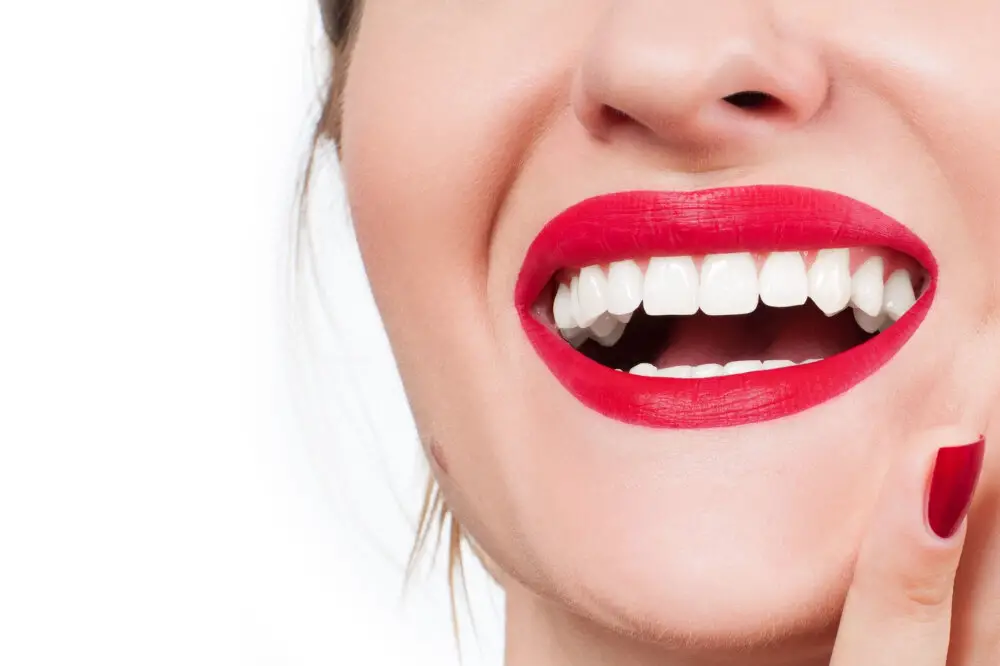
Knowing the number of teeth in rabbits is crucial for anyone who wants to own or take care of these furry creatures. Rabbits are herbivores, and their teeth are essential for their survival as they help them grind down tough plant material. A rabbit’s teeth also continually grow throughout their lifetime, and any imbalances or malformations can cause severe medical issues. Therefore, understanding the number of teeth in rabbits is crucial in maintaining their oral health. Rabbits have a total of 28 teeth, with four incisors at the front of their mouth and 24 molars at the back. The incisors are essential for biting and cutting food, while the molars help grind and chew food, allowing the rabbits to extract essential nutrients from their diet. If a rabbit’s teeth are not aligned correctly, they can grow too long, causing pain, discomfort, and even difficulty eating. Additionally, rabbits who do not have access to enough roughage may suffer from dental disease, which can cause tooth decay, infections, and abscesses. Therefore, understanding the number of teeth in rabbits can help owners ensure that their pet is healthy and happy.
The health of a rabbit is closely related to the condition of its teeth. Rabbits have a unique dental structure, with their teeth continually growing throughout their lives. If their teeth become overgrown, it can cause serious health problems, including pain, difficulty eating, and even death. In addition, rabbits are prone to dental disease, such as abscesses, which can also cause pain and discomfort. Proper dental care, including regular checks by a veterinarian and a diet rich in hay and other fibrous foods, can help ensure that a rabbit’s teeth remain healthy and strong, allowing them to live a happy and comfortable life.
For rabbit owners and breeders, knowing the number of teeth a rabbit has is crucial to ensure the animal’s health and well-being. Rabbits have a total of 28 teeth, which includes six incisors in the front of their mouth, and 22 molars and premolars located in the back. These teeth are essential for rabbits to maintain a healthy diet, as they rely on them to grind down tough vegetation. However, if a rabbit’s teeth are not properly aligned or if they become overgrown, they can cause serious health problems, including malnutrition and infections. Regular dental check-ups are essential for rabbit owners and breeders to catch any dental issues early and prevent them from becoming severe.
Rabbits are known for their unique dietary habits, which are strictly herbivorous. These fragile creatures require a high-fiber diet that consists of hay, vegetables, and fruits to keep their teeth healthy and strong. In fact, their teeth grow continuously throughout their lifetime, which requires them to constantly chew on fibrous food items to wear down their teeth. A lack of fiber in their diet can lead to dental problems, such as malocclusion, where their teeth grow unevenly and cause pain and discomfort. Therefore, it is crucial to ensure that rabbits are fed a balanced diet that meets their dietary requirements to maintain their dental health and overall well-being.
Rabbit teeth have a unique structure and serve many functions. These animals have a total of 28 teeth, with four incisors in the upper jaw and two in the lower jaw, which they use for cutting and slicing food. The molars and premolars are located in the back of their mouth and are responsible for grinding and crushing food. What sets rabbit teeth apart is that they never stop growing, and they need to wear them down through constant chewing and gnawing. This is why providing rabbits with a healthy diet of hay, fresh vegetables, and fruits is crucial to their dental health. In addition, chew toys and blocks can also help keep their teeth in check. Neglecting their teeth can lead to overgrowth, malocclusion, and even death. Therefore, it is essential to monitor their dental health regularly to ensure a happy and healthy bunny.
Knowing the number of teeth in rabbits is crucial for several reasons. For one, rabbits are herbivores and rely heavily on their teeth to grind down tough plant material. Any abnormalities or malocclusions in their teeth can lead to poor nutrition and even death. Additionally, rabbits’ teeth grow continuously throughout their lives, and without proper wear, they can become overgrown and painful. Regular dental checkups and monitoring the number of teeth in rabbits can help prevent these issues and ensure their overall health and well-being. Therefore, it’s essential for rabbit owners and veterinarians to understand the anatomy and function of rabbit teeth and take the necessary measures to maintain their dental health.
In conclusion, rabbits are fascinating creatures with unique dental anatomy. They have four incisors in the front of their mouth that never stop growing, and molars in the back for grinding their food. Regular dental check-ups are crucial for rabbits, as overgrown teeth can cause serious health issues. Additionally, providing a diet rich in hay and fibrous vegetables can aid in keeping their teeth healthy and trimmed. It’s also important to note that rabbits can suffer from dental problems due to genetics, so it’s essential to adopt from reputable breeders or shelters. By taking good care of their teeth, we can ensure that these adorable bunnies stay happy and healthy for years to come.
Conclusion
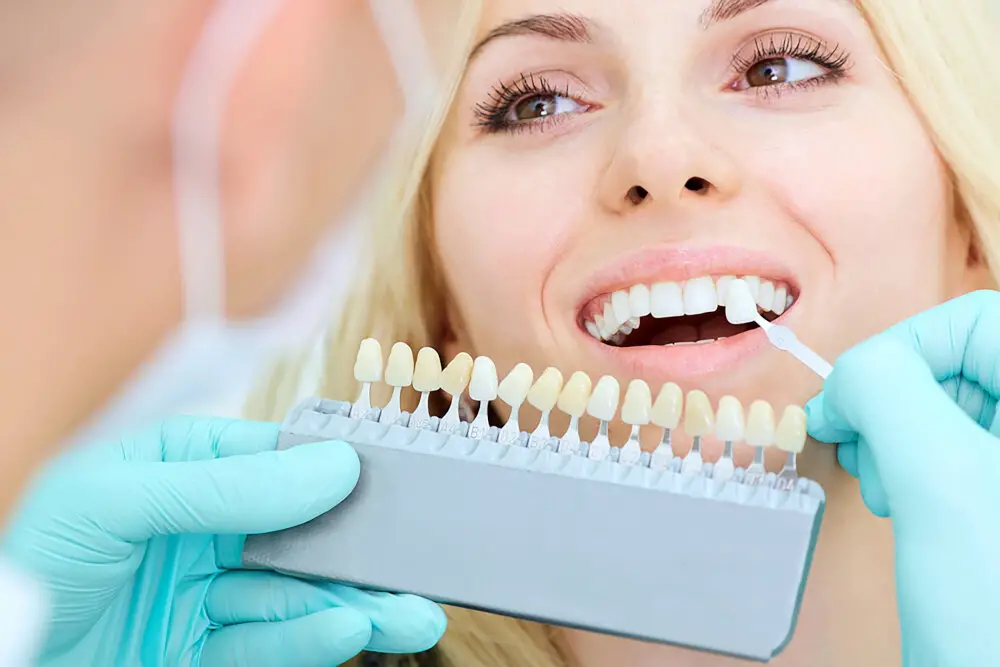
In conclusion, the number of teeth a rabbit has is an interesting and important aspect of their biology. These herbivorous animals have unique dental structures that allow them to efficiently grind and chew their food. With a total of 28 teeth, including four incisors, two canines, and 22 molars, a rabbit’s dental health plays a vital role in their overall health and well-being. Regular dental checkups and a healthy diet are crucial for ensuring a rabbit’s teeth stay in good condition. Understanding the intricacies of a rabbit’s dental anatomy can help us better care for these adorable pets and appreciate the fascinating world of animal biology.
